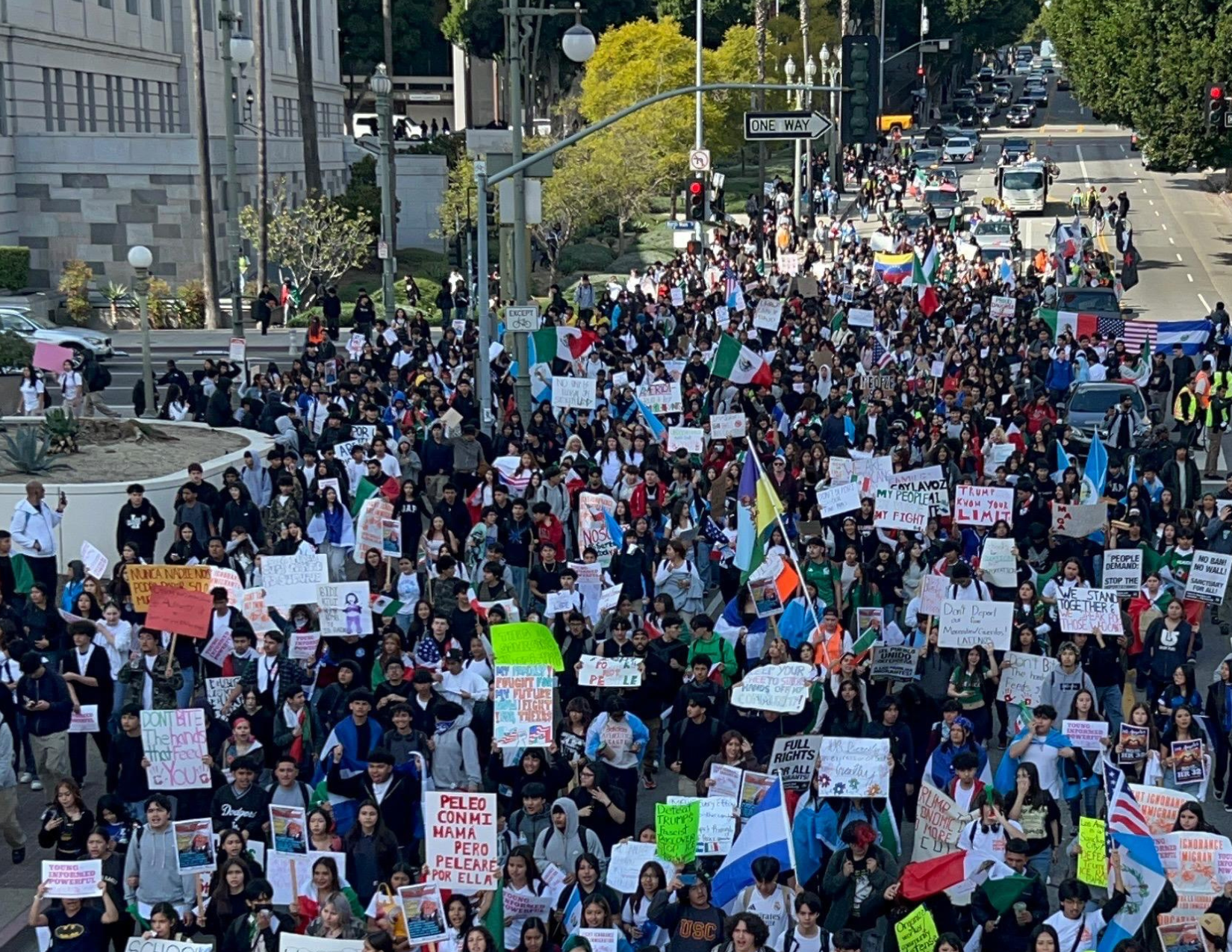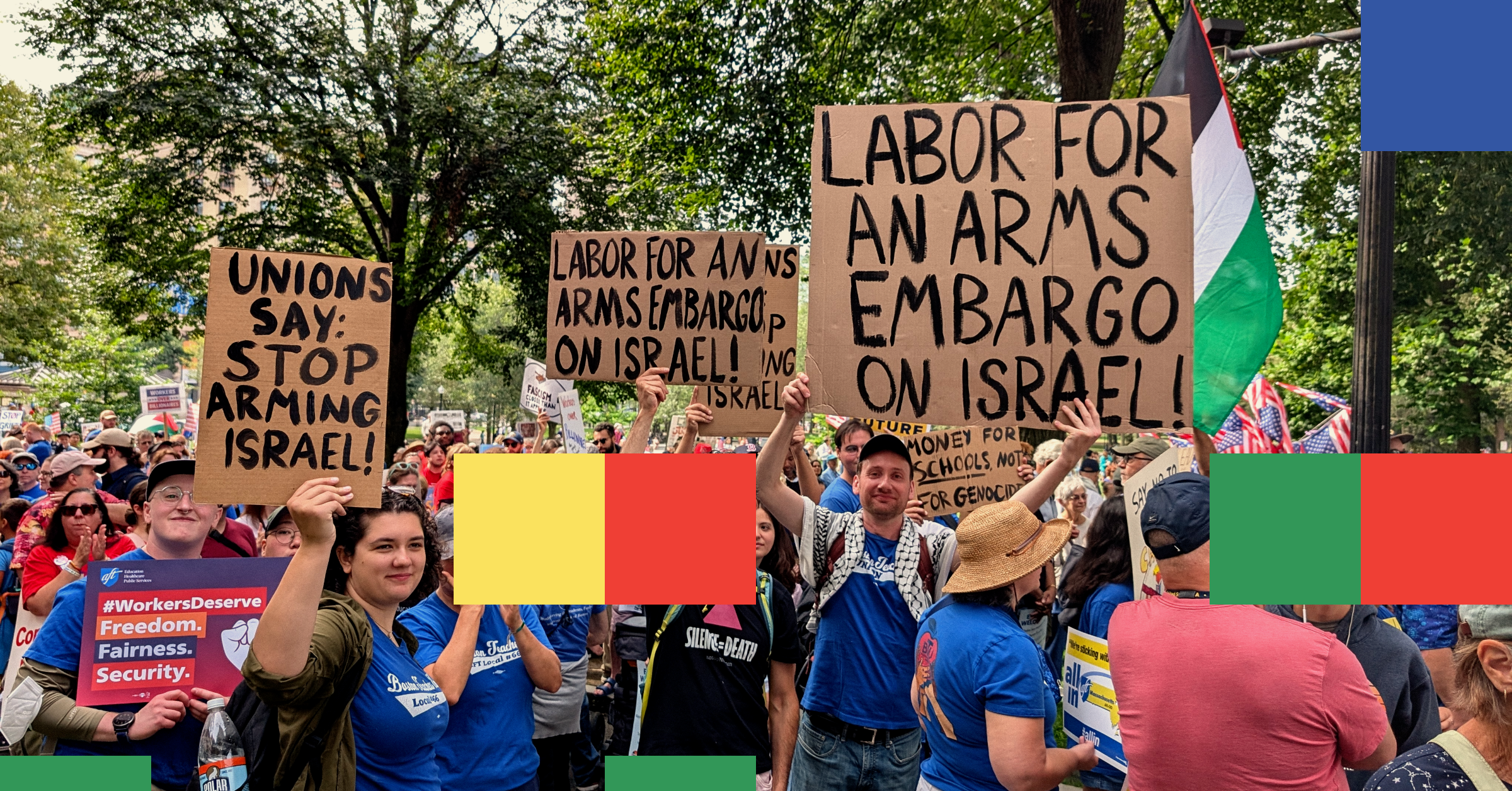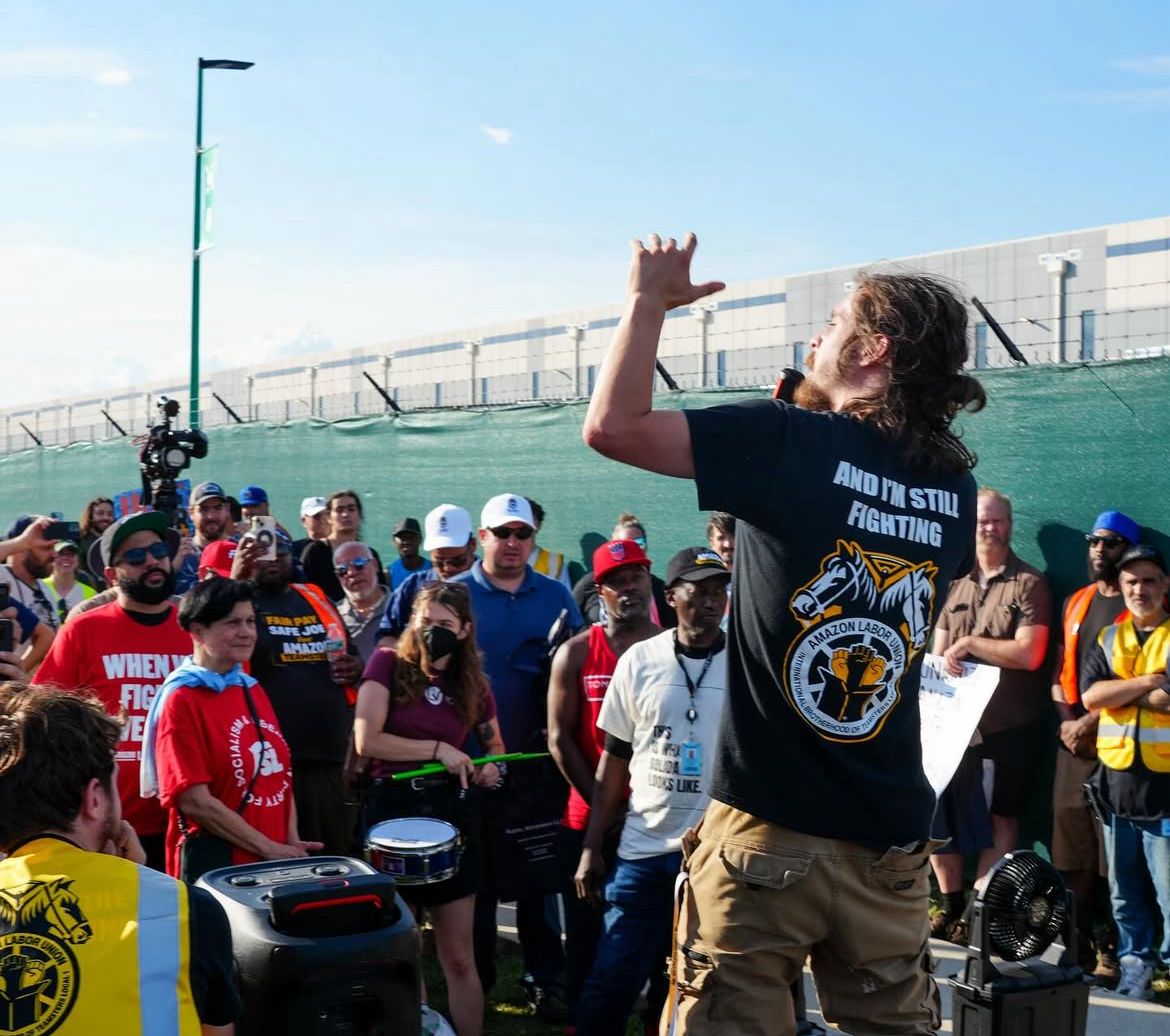Two years ago, I decided to take a rank-and-file job in a union workplace.
I had been working as a staff organizer for a national union. I took that job because I wanted my day job to be political: I wanted to fight for economic justice on and off the clock. I traveled between job sites, speaking to worker leaders, and coming up with campaigns to build their power in the workplace. I worked with a group of 200 non-union workers on a card check campaign, helping them form an organizing committee, conduct a first-contract survey, and join the union from which they’d been excluded.
When the work was good, it was great. But there was always something nagging at me. Here I was, organizing the working class, but I didn’t feel like part of the movement. I wasn’t organizing with or within the working class. The members’ struggle was not my struggle and never could be. I was out of touch — by the nature of my position — with the daily life and experience of the members, and there were hard political limits to what I could do.
When my local union’s elections came up, I worked to identify leaders who might challenge the existing leadership, leaders who mismanaged the union and made bad political decisions and even worse organizing decisions. But it was well known that staff organizers couldn’t interfere in the internal politics of the union. We called it the “third rail” because if you touch it, you’re dead. So I couldn’t organize alongside these members; I could only encourage them to take on a risky project from the sidelines. And when I was reassigned for months at a time, on the whim of my bosses, I lost touch with these projects and the members were left out in the cold.
A year into my new job as a rank-and-file union member, I may have a long way to go, but I’ve spoken to my coworkers about Bernie Sanders, started a rank-and-file newsletter, gathered signatures for an opposition slate to run in the union elections, agitated around our contract vote, and laid the foundation to challenge an absentee union steward. One of my coworkers even joined the Democratic Socialists of America. We’re a long way off from anything like a mass job action, but we’re laying the groundwork for a movement.
When I started looking for a rank-and-file job, I knew I wanted one that would allow me to stay in the union movement, fight for economic justice, and work for the politics I believe in. I started by mapping out all the locals in my city, searching for unions with political potential: active rank-and-file groups, employers in strategic industries. Plus, I wanted a job I could live with. I talked to friends in DSA and to old socialists with experience in the rank-and-file movement to think about what works and what doesn’t. They all told me that going rank-and-file is a long haul — not guaranteed to pay off — but that just getting some experience as a member of the union reform movement was the first step.
It didn’t happen overnight. It took me the better part of a year to read up on the actually existing union movement in my city, talk to as many people as possible, find a reasonable target, and get hired. I made sure to take a job where I wouldn’t be alone; my union has an active rank-and file caucus, both locally and nationally. I had friends in DSA who were already in the union. The reform caucus and the personal relationships have been key both to sustaining me through the day-to-day and to providing a big political vision to pursue, rather than flying solo. If at all possible, going rank-and-file should be done with a group.
On day one, I was clueless. Somewhere in the back of my mind I imagined myself as a union militant, vocally agitating for a reformed, democratic union that fights for the whole working class. But there was a big gulf. First I had to learn the job, and then I had to build basic relationships. Three months feels like a long time for someone itching to organize, but for your coworker who’s been there 15 years, you have no credibility until you put in the time. And you have no idea what the real issues are until you’re on the inside.
Early on in my time, the union leadership recommended a contract agreement with big healthcare concessions. I thought people would care, but barely anyone even seemed aware. The real fight was in a different unit of the union, where members voted down the contract. They formed a rank-and-file group that I helped build, protesting our bosses at public meetings, circulating petitions, and doing an informational picket outside the union hall. I came to understand that my job in building the rank-and-file movement isn’t necessarily to be a leader — it’s to identify and support the most militant already-existing working-class leaders.
What I’ve gotten as a rank-and-filer that I didn’t have as a staffer is a sense of shared struggle. I’m no longer telling people to “go fight” but instead subjecting myself to the same risks and same rewards. When I talk to my coworkers about what we’d like to see change, it’s more powerful because I can join in that “we.” My coworkers’ fears and hopes are no longer something “over there,” but something I share: I work the same job, have the same bosses, and worry about the same paycheck. My coworkers and I “organize” every day, whether I’m in the mood or not, whether I have a plan or not. And I have no choice but to deal with the most difficult, or anti-union, or politically reactionary workers.
Over the past year, I’ve strengthened my organizing skills. Unions sometimes speak aspirationally about “whole worker organizing” — organizing that takes into account a worker’s communities, identities, and commitments outside the workplace. For a rank-and-filer, there’s nothing aspirational about this at all; it’s a fact of our relationships at work that we learn about one another, and care for one another, and appreciate the complexity of each member’s political commitments and ideas.
But I haven’t done everything yet, and a lot of it, I will admit, is a waiting game. I’m always dreaming up campaigns and job actions and things to build toward, but a good deal of this work is being in the right place at the right time. When something big jumps off, no one has a deeper set of relationships or a more comprehensive rapid response network or sense of the political situation than a deeply embedded organizer.
After a year on the job, I still don’t see a better way to build the kind of power and organization we need to win socialism. There is no road to socialism that doesn’t include socialists turning to the working class and its organizations. For decades, the organized Left has been in a little box over here, and the working class in a sprawling expanse over there, with little in the way of a pipeline between them.
We need to build deep connections between those of us committed to a political vision of socialism in our lifetime and the large section of the working class that is in a strategic position to fight back against capitalism. Those connections can only be built through personal relationships based on shared organizing.
The task for this decade and the next is to unite the socialist movement and the working-class movement, the booming DSA and, for example, the teachers’ strike wave. That happens through people making a deliberate choice to organize within the workplaces and unions of the most strategically situated sectors and among the most willing and able to fight back. So get a union job. You could be the link.




